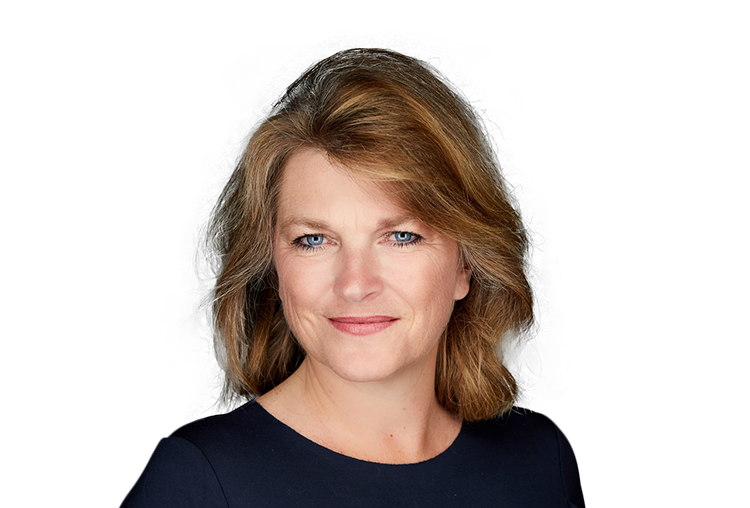
Why we should cherish women over 50
Multigenerational teams bring competitive advantages. It’s vital to tap into the wisdom and experience of older workers, urges Shelley Zalis....
Audio available

by Heather Cairns-Lee Published February 16, 2022 in Diversity, Equity, and Inclusion • 4 min read
One of the biases that is deeply ingrained in society is that of ableism – the assumption that people with disabilities are somehow inferior to the non-disabled. Ableism encompasses individual stereotypes and practices as well as systemic policies and barriers. While these individual and societal assumptions, like most biases, are often caused by lack of awareness, they can result in ableist language and actions that may be hurtful, offensive, or exclusionary to disabled people. One of the ways we can foster inclusion is by being attentive to how ableist beliefs and language influence society and perpetuate norms that view disability as “less than”.
Disability typically refers to a condition – mental, physical, and/or developmental – that makes it more difficult for someone to interact with the world around them or to undertake certain activities. While disability has a binary ring to it – being able or disabled – it is complex depending on the form and severity of impairment, when and how the disability appeared, e.g. from birth or later, from an accident, and whether it is visible or invisible.
In addition to disability, many people today are living with diminishing ability, which may occur through chronic ill health or ageing. According to the World Health Organization (WHO), by 2030 one in every six people in the world will be aged 60 or over, and by 2050 the number of people aged 80 and over will triple. This implies that the number of people caring for elderly relatives and dealing with the consequences of diminishing physical and mental ability is only going to increase, which underscores the importance of checking ableist beliefs and language.
Globally, 15% of the population are living with a disability, according to the World Bank. To address society’s strongly ingrained ableist bias and contribute to a more inclusive, accessible, and sustainable world, below are five questions that can encourage greater sensitivity to people with visible or invisible disabilities. These questions emerged from reflections on a conversation convened by IMD’s Chief Equity, Inclusion and Diversity Officer, Josefine van Zanten, in support of people with disabilities, with input from Patricia Humbert, IMD’s Talent Acquisition and Development Specialist. Following an accident, Humbert was suddenly confronted with a disability and, as a wheelchair user, she is faced with navigating the premises and the gaze of others every day.

“Do you adjust your posture to meet others at eye level? Being 'overlooked' is a common complaint of wheelchair users”- Heather Cairns-Lee
Five questions to consider when fostering inclusion:
1. What are your assumptions about disability? Do you underestimate people because of their disability? People with disability or ill health may not see their situation in the same way as you, so check your assumptions.
2. How do you address people with a disability? Do you speak to those who are disabled or in ill health directly, or do you speak to their colleagues or caregivers? For people in wheelchairs or those who are unable to move easily due to ill health, do you adjust your posture to meet them at eye level? Being “overlooked” is a common complaint of wheelchair users and negative attitudes towards disability are a barrier to greater inclusion (WHO) and an indicator of the ableist bias.
3.What kinds of micro-aggressions litter your communication? Micro-aggressions are everyday expressions that communicate a slight or put down. These expressions, however unintentional, indicate ableist stereotypes: “That’s so lame”, “You’re crazy”, “It’s like the blind leading the blind”, “Well, that fell on deaf ears”. And that is just in English.
4. Are you listening? Disability or chronic ill health can trigger feelings of pity, embarrassment, or helplessness, making it challenging for people to listen and respond without trying to fix the person or the situation. So, if you ask those with disabilities or suffering from chronic conditions how they are, please listen. Silent is an anagram of listen, and your full attention and sincere listening may be the most precious of gifts.
5. Do you advocate for equal access? The physical and social environment we live in is based on able-bodied/minded norms. These norms are often invisible to those without disabilities, yet they create additional and unnecessary barriers for disabled people. Considering how to make employment, education, premises, products, and services more accessible contributes to a more inclusive society.

Affiliate Professor of Leadership and Communication
Heather Cairns-Lee is Affiliate Professor of Leadership and Communication at IMD. She is a member of IMD’s Equity, Inclusion and Diversity Council and an experienced executive coach. She works to develop reflective and responsible leaders and caring inclusive cultures in organizations and society.

January 22, 2026 • by Shelley Zalis in Diversity, Equity, and Inclusion
Multigenerational teams bring competitive advantages. It’s vital to tap into the wisdom and experience of older workers, urges Shelley Zalis....
 Audio available
Audio available
January 21, 2026 • by Rupa Dash in Diversity, Equity, and Inclusion
As women live longer, society must rethink careers and leadership to unlock a longevity-equality dividend that enables women to contribute and lead at every life stage....
 Audio available
Audio available
October 24, 2025 • by Luca Condosta, Alexander Fleischmann in Diversity, Equity, and Inclusion
Companies gain performance advantages through LGBTQ+ inclusion, yet nearly nine in 10 Swiss firms lag. Here’s how leaders can close the gap....

October 21, 2025 • by Vanina Farber in Diversity, Equity, and Inclusion
When talk of diversity triggers backlash, leaders face a paradox: how to advance inclusion goals while choosing language that keeps dialogue alive in hostile environments....
Explore first person business intelligence from top minds curated for a global executive audience